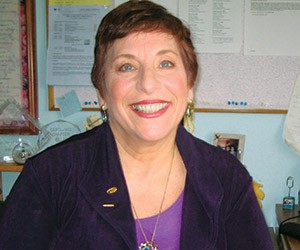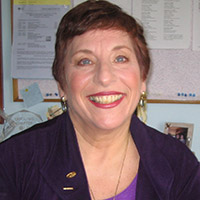1. Use value season/holidays/days of week or hot dates and watch for special deals and sudden cancellations if you are flexible.
Flexibility is the key to saving money when you are selecting dates and sites. Take advantage of special deals if it fulfills your meeting objectives. Also, remember that hotels prefer that you book Sunday-Wednesday and Wednesday-Sunday patterns. If your meeting is scheduled for a Tuesday-Thursday pattern, it is more difficult for a hotelier to fill the hotel on days that don’t fit into their preferred pattern.
2. Use cumulative rather than nightly when negotiating complimentary room nights on sleeping rooms.
If you negotiate one complimentary room for every 40 rooms picked up and your pick-up for a four-day/three-night meeting is Sunday: 39 rooms; Monday: 39 rooms; and Tuesday: 39 rooms, you would receive NO comp rooms if it is based on a nightly count. However, if you base your comp rooms on a cumulative count, you receive two comp room nights. One word, cumulative rather than nightly, will save you money.
3. Streamline the agenda to minimize meals and additional hotel nights.
If you have input in developing the meeting agenda, consider beginning your meeting after breakfast or lunch or end the meeting prior to a meal to save money on food and beverage. Also, analyze where your attendees are coming from and plan your agenda around the airline schedules. A meeting on the West Coast could begin in the afternoon and end prior to lunch so that your attendees can fly in and out without staying additional nights.
4. Contact entertainers who are in town for other shows or functions.
If entertainers live in your city or are in town performing for another event, you may be able to book them at drastically reduced rates, particularly if you want them to perform during the day, when they might be available. I was able to arrange for Minnie Pearl to speak at no charge during lunch at the Opryland Hotel in Nashville, Tenn., in exchange for two complimentary around-the-world airline tickets at a luncheon sponsored by Pan American Airways.
5. Limit authorized signatures.
You can develop a great budget and have it go awry on-site when requests are made for additional wine, coffee or audiovisual equipment. Determine who is authorized to sign for charges and include the names in your staging guide that is sent to the convention service manager prior to your meeting or event. State that no charges will be paid if they are made by unauthorized individuals. Try to limit the number of signatures to two or three people.
6. Communicate clear policies to speakers/staff to avoid excessive charges.
Determine IN WRITING what charges will be paid for travel and meal expenses as well as miscellaneous charges for speakers and staff.
7. Work with the chef in developing your menus.
Whenever I plan F&B functions, I arrange to meet with the chef during my site inspection. We discuss what is being served to other groups, what is in season, personal specialties and recommendations on how to plan a cost-effective menu. It is far cheaper for the chef to order in bulk for several groups than to order individual orders for each group. The chef can use less expensive cuts of meat and use varied seasonings to create visually exciting and tasty menus. Inquire about “dead wine” or wine in inventory that might be left over from other groups that you can order less expensively.
8. Serve continental breakfast instead of full American breakfast.
An alternative to a full American breakfast is to serve a continental breakfast, which is normally coffee or tea and a breakfast roll. I suggest upgrading the menu to include protein such as hard-boiled eggs, cheese, yogurt, fruit and cold cereal.
9. Use juices left over from breakfast to make afternoon smoothies.
If you have served juices in the morning and have leftover juices, use them in smoothies in the afternoon. Choose two or three different flavors and serve them in pitchers. They are healthy, refreshing and are cost-effective.
10. Eliminate soft drinks and bottled water.
Instead of serving bottled water, have pitchers of water on tables or water stations where water might be flavored with fruits. You will save money and be green at the same time. PageBreak
11. Rely on history for meal guarantees.
Who wants to pay for meals that are not consumed? The best way to determine effective guarantees is to know what you have done in the past. Prepare a chart for every meal with guarantees and actual meals served. Following your meeting, evaluate where your guarantees were too high. If you are planning a banquet toward the end of your conference, request that participants exchange their banquet tickets for a table assignment, which will provide you with a fairly accurate account of who will be attending the banquet. People might leave early or decide that they want to gather with colleagues for more intimate dining. Remember that guarantees can be increased but not reduced. However, it is not considerate to raise your guarantees substantially just a few days out, thereby putting your hotel in a difficult position for staffing and insufficient food for your group. History can be a good guide in determining your guarantees.
12. More e-mails, less printing; eliminate handouts (or use designated printers), which benefits the environment and saves money.
The profile of your group will guide you in relying upon social media and the Internet for promotion and confirmations. You can request that participants print out handouts in advance; however, I have found that most people do not print out handouts in advance. As a speaker, I have found that people learn more effectively if they have notes in front of them. You might arrange to have printers on-site so people can run off handouts only for sessions that they will be attending. When case studies are an integral part of my presentation, they are handed out on-site. Notes taken on flip charts are e-mailed to participants following my sessions.
13. Prepare a timeline with deadlines to take advantage of least-expensive shipping rates.
What service does FedEx sell? If you said procrastination, you are correct. Most people know the last-possible minute that their FedEx representatives will pick up packages for next day delivery. If you plan ahead and prepare timelines, you can ship several days out on FedEx or other carriers. Be aware that if you are planning an international meeting, double the normal time for shipping packages.
14. Work with one audiovisual company as a preferred supplier for volume discounts; if a facility charges 15 percent to 20 percent, use it as negotiating leverage to reduce their prices.
If you negotiate deals with preferred suppliers, it can save you substantial money by booking in volume. In the event that it makes financial sense to use the in-house company, your negotiated rate gives you leverage in your negotiations.
15. Bring your own equipment, flip charts, markers and extension cords.
It is much less expensive to go into a store like Office Depot or Office Max and purchase flip charts and markers. If you do use the flip charts from a facility, state in your staging guide that new pads and markers should not be provided each day unless they have been used up. It may make sense to purchase reasonable equipment and donate it following your meeting.
16. Create permanent generic reusable signs with updated information on Velcro.
It is less expensive to print a small sign with the time and location of a function that is attached to your generic sign with Velcro than to print large signs for each meeting. Save the boxes for return shipping.
17. Arrange air transportation for speakers, or specify “least-expensive air fare,” or provide a cap for airline fares.
When you offer to pay for airline tickets for speakers, be certain that you are communicating clearly. You don’t want to be thinking coach airfare when your speaker is thinking first class. There might be substantial differences between the cost of a speaker’s preferred carried and another carrier that flies the same route.
18. Book flights after midnight on Tuesday for the least expensive fares.
You are most likely to get the least expensive airfares when you book flights on Tuesday evenings or Wednesday mornings.
19. Negotiate FREE ground transportation for your staff in exchange for promoting shuttle service to attendees.
When I have planned large conferences and brought many staff with me, I have arranged to promote shuttle service to my attendees at a discounted rate and I received complimentary shuttle transportation for my staff and some speakers.
20. Review the master account daily to catch errors while on-site.
We are all busy on-site during meetings and events, but check your schedule to determine when your participants are in session. Arrange for your convention service manager and billing manager to meet you in your on-site office and review the previous day’s charges. You may pick up some errors of things that were included in your staging guide but cancelled in advance of the function. Also, there might be other errors that come to your attention, and it is far easier to have the review on-site than when you return to your office. This is a good time to analyze preferences in regular/decaf coffee and alcoholic beverages that have been requested. When you return to your office about 90 percent of the charges will have been reviewed and it will be much easier for you to reconcile your final bill.
Bonnie Wallsh, MA, CMP, CMM, is the chief strategist of Bonnie Wallsh Associates LLC, a professional meeting management, consulting and training firm.. Her clients include corporations, trade publications, associations and nonprofit groups. Bonnie is a renowned speaker presenting a wide range of face-to-face programs and webinars for the hospitality industry and administrative professionals, including many for Meetings Focus. She has written extensively about the meetings industry and is frequently interviewed for the trade and consumer press.







